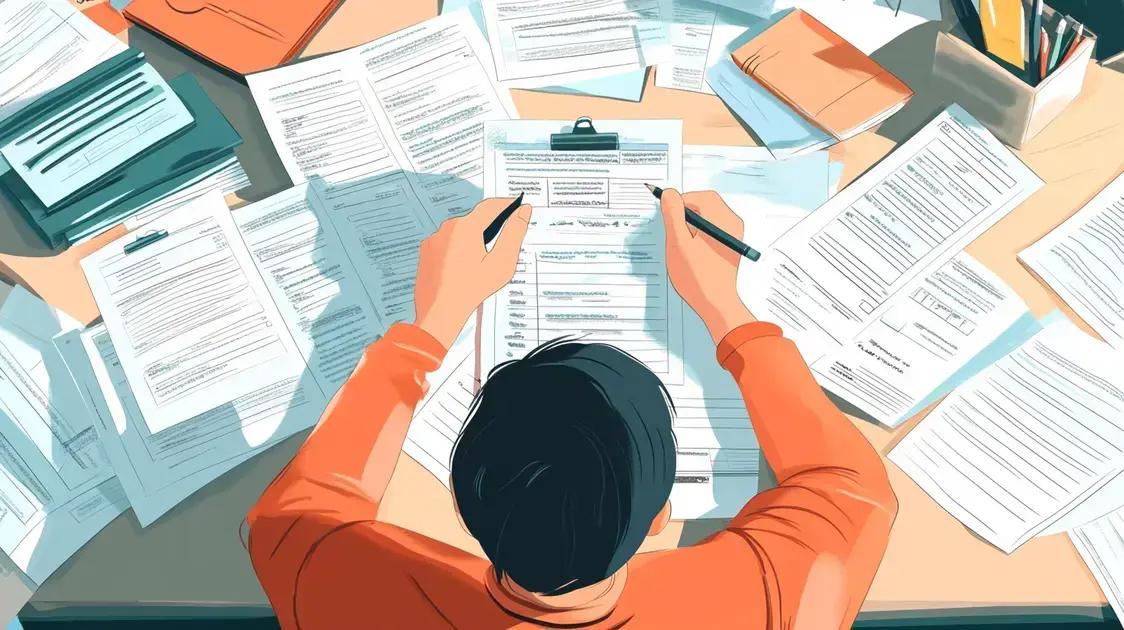How to get approved for a loan is a question many people ask when they need financial assistance.
Understanding the loan process can help you navigate your options and improve your chances of getting approved.
From checking your credit score to gathering essential documents, this guide will walk you through each necessary step. Join us as we delve into understanding loan requirements and preparing for your loan application process.
Understanding Loan Requirements
Understanding loan requirements is the first step in securing funding. Lenders typically look at your credit score, income, and debt-to-income ratio. Your credit score shows how reliable you are in paying back loans, while your income helps lenders determine if you can handle monthly payments.
Next, lenders will ask for documents to verify your information. This can include pay stubs, tax returns, and bank statements. These documents give lenders a clear picture of your financial situation and ability to repay the loan.
Finally, each loan type has specific requirements. For example, a mortgage may need a higher credit score than a personal loan. Understanding these differences helps you choose the right loan and increases your chances of getting approved.
Improving Your Credit Score
Improving your credit score is important for getting approved for a loan. A higher score can lead to better loan terms and lower interest rates. To start, pay your bills on time and avoid late payments. Consistently meeting deadlines shows lenders you are responsible.
Another way to boost your credit score is to reduce your debt. Try to pay down credit card balances and avoid taking on new debt. Keeping your credit usage low helps improve your score over time.
Lastly, check your credit report for errors. Sometimes mistakes can lower your score unfairly. If you find any errors, dispute them with the credit bureau to get them corrected. Taking these steps can make a big difference in your credit score.
Gathering Necessary Documentation

Gathering necessary documentation is a key step in getting approved for a loan. Lenders want to see proof of your income and financial stability. Common documents include pay stubs, tax returns, and bank statements. Having these ready will help speed up the application process.
It is also important to provide identification documents. These may include a driver’s license or a passport. Lenders need to verify your identity and ensure you are who you say you are. Make sure any documents submitted are clear and easy to read.
Lastly, if you are self-employed or have irregular income, you may need additional documentation such as profit and loss statements. Being prepared with all required documents shows lenders you are organized and serious about your loan application.
Exploring Your Loan Options
Exploring your loan options is vital to finding the best fit for your financial needs. There are several types of loans available, such as personal loans, mortgages, and auto loans. Each type serves a different purpose, so it’s important to understand what you need before deciding.
When looking at loans, compare interest rates and terms from different lenders. Some lenders offer better rates than others based on your credit score and income. Taking the time to shop around can save you money in the long run and help you make a more informed decision.
It’s also good to review the fees associated with each loan option. These fees can vary widely among lenders. Understanding these costs helps you avoid surprises later and ensures you choose a loan that fits your budget.
Preparing for the Application Process
Preparing for the application process is a crucial step in getting your loan approved. Start by organizing all your documentation, including income proof, ID, and credit reports. Having everything ready will make it easier to fill out the application and show lenders that you are serious.
Next, take some time to review the loan application itself. This usually includes personal information, employment details, and financial history. Understanding what questions will be asked helps you provide accurate answers and avoid delays.
Finally, consider setting aside time for a pre-approval. This can provide you with clarity on how much you can borrow and what terms you can expect. Knowing this ahead of time will make the application process smoother and give you confidence when speaking with lenders.
Tips for a Successful Approval

To increase your chances of a successful loan approval, always be honest on your application. Providing accurate information builds trust with the lender. Double-check your details for any errors before submitting, as mistakes can cause delays or denials.
Another tip is to maintain a steady income and show job stability. Lenders like to see that you have a reliable source of income. If you’ve recently changed jobs, be prepared to explain your situation and how it supports your ability to repay the loan.
Lastly, staying in touch with your lender is important. If they request additional information, respond quickly and provide the necessary documents. Being proactive and communicative can helpkeep your application on track and show your commitment to getting approved.
Avoiding Common Mistakes When Applying for a Loan
Avoiding common mistakes during the loan application process can make a big difference in whether you get approved. One major mistake is applying for multiple loans at once. Each application can trigger a hard credit inquiry, which may lower your score and signal desperation to lenders.
Another frequent error is not reading the loan terms carefully. Be sure to review interest rates, repayment schedules, and any hidden fees. Understanding these details upfront helps prevent surprises later and ensures you’re choosing a loan you can manage.
Finally, avoid overestimating your income or underreporting your expenses. Lenders verify this information, and inconsistencies can lead to rejection. Being honest and realistic with your finances helps build credibility and improves your chances of approval.
Loan Application Process
What types of loans are available?
Different loans serve different purposes, such as personal loans for immediate needs or home mortgages for purchasing property.
How does my credit score affect loan approval?
A higher credit score typically leads to better loan terms, including lower interest rates.
Why is a stable income important when applying for a loan?
Lenders prefer applicants who show consistent earnings and job stability.





